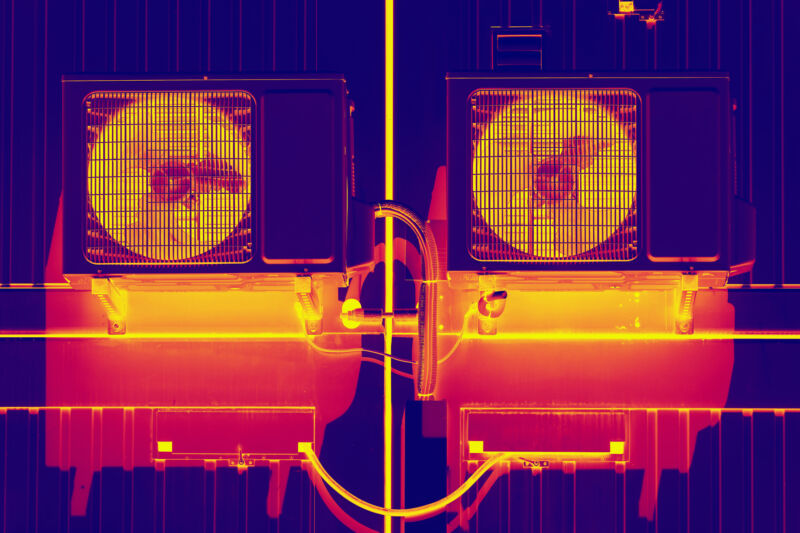Capacitor-based heat pumps see big boost in efficiency

Enlarge (credit: FHM/Getty Images)
Various forms of heat pumps-refrigerators, air conditioners, heaters-are estimated to consume about 30 percent of the world's electricity. And that number is almost certain to rise, as heat pumps play a very large role in efforts to electrify heating to reduce the use of fossil fuels.
Most existing versions of these systems rely on the compression of a class of chemicals called hydrofluorocarbons, gasses that were chosen because they have a far smaller impact on the ozone layer than earlier refrigerants. Unfortunately, they are also extremely potent greenhouse gasses, with a short-term impact several thousand times that of carbon dioxide.
Alternate technologies have been tested, but all of them have at least one major drawback in comparison to gas compression. In a paper released in today's issue of Science, however, researchers describe progress on a form of heat pump that is built around a capacitor that changes temperature as it's charged and discharged. Because the energy spent while charging it can be used on discharge, the system has the potential to be highly efficient.